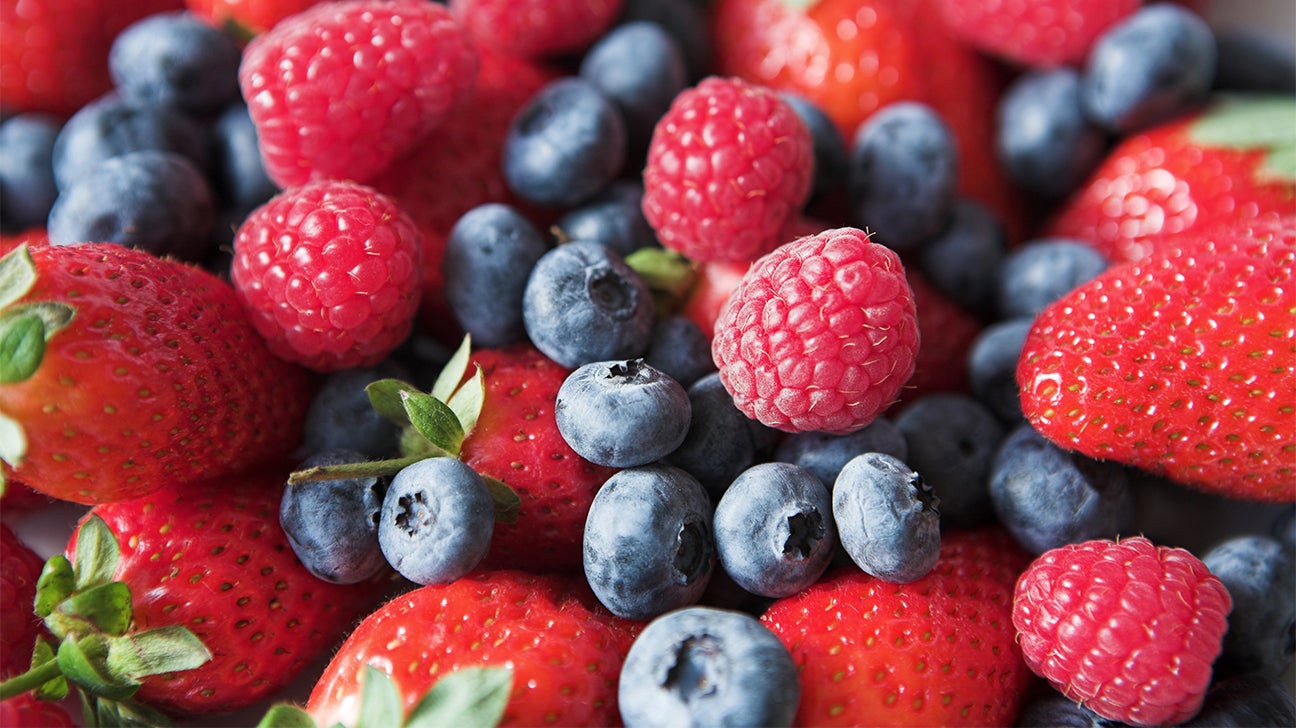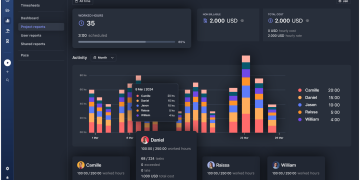In an age where survival skills are more of a fascination than a necessity, the concept of living off the land for an extended period has intrigued many. The idea of surviving on just wild berries, for instance, poses a unique challenge. While it seems both romantic and simple, there’s more to the survival of this practice than meets the eye. Would it be possible to thrive on just these small, often sweet, sometimes tart fruits? Or would a week-long survival diet leave you feeling malnourished and depleted? Let’s delve into the pros and cons, the science behind berries, and the realities of living off wild berries for an entire week.
The Appeal of Wild Berries: A Natural Abundance
Wild berries—blueberries, blackberries, raspberries, and strawberries—are some of the most accessible wild foods on Earth. They grow in temperate climates around the world, often found in forests, along riverbanks, or even in urban green spaces. Their appeal is clear: they’re free for the taking, full of vibrant colors, and packed with antioxidants. They seem like a perfect food source for anyone trying to live off the land.
The nutritional profile of wild berries is indeed impressive. A typical serving is a nutrient-dense powerhouse, providing vitamins like C, K, and A, along with fiber, antioxidants, and minerals like manganese and potassium. Foraging for these fruits can make you feel like you’re tapping into a rich, untapped resource that nature has provided. But what happens when this seemingly endless bounty becomes your sole source of nutrition for an entire week?
The Pros of Eating Wild Berries
- High in Nutrients
Wild berries are packed with essential vitamins and minerals. Their high vitamin C content helps support immune function and can even act as a mild antioxidant, protecting cells from oxidative stress. Berries also provide good amounts of dietary fiber, which helps regulate digestion. - Rich in Antioxidants
One of the most attractive aspects of wild berries is their antioxidant content. These compounds help fight free radicals, which are molecules that can damage cells and accelerate aging. Some studies suggest that wild berries may even have anti-inflammatory properties, potentially reducing the risk of chronic diseases. - Low in Calories
Berries are naturally low in calories, which might sound like a bonus for those looking to lose weight. Their light caloric load makes them an excellent option for occasional snacking or a cleansing detox diet. - Sustainable and Accessible
Wild berries are among the most abundant food sources in nature, available in nearly every part of the world during certain seasons. Foraging doesn’t require expensive equipment or extensive knowledge of farming, making wild berries one of the most accessible natural foods. This makes them an excellent choice for wilderness survival situations. - Hydration
Many wild berries, like raspberries and strawberries, contain a high percentage of water, which helps with hydration in the absence of a clear water source.

The Cons: A Week of Wild Berries?
While wild berries offer significant benefits, they come with their own set of challenges when considered as the main food source for an entire week. Let’s explore some of the drawbacks of living off berries alone.
1. Lack of Protein and Fat
Berries are rich in sugars and carbohydrates, but they are low in fats and proteins. Both protein and fat are essential macronutrients that our bodies need to build muscle, maintain cellular function, and produce energy. Without sufficient protein, you might start to feel lethargic or weak, and a lack of fat could impact your energy levels, mood, and cognitive function. In fact, after a few days on just berries, you’d likely feel fatigued and hungry as your body struggles to meet its protein and fat requirements.
2. Limited Caloric Intake
Despite their rich nutritional value, berries are relatively low in calories. An average serving of wild berries may only contain around 50–100 calories. If you’re relying on berries to meet your daily caloric needs, you’d need to consume large quantities to reach the minimum caloric intake, which can be both impractical and unsustainable. On a diet that’s low in calories, you may start to feel weak or dizzy due to insufficient energy.
3. Nutrient Imbalance
Wild berries are fantastic in terms of providing vitamins, antioxidants, and fiber, but they lack a balanced array of nutrients. For instance, berries are very low in iron, calcium, and vitamin B12, all of which are crucial for maintaining proper bodily function. Without these nutrients, deficiencies can occur, leading to fatigue, anemia, or compromised immune function over time.
4. Risk of Toxic Berries
Not all berries are created equal. Some wild berries are toxic, and differentiating between edible and poisonous varieties can be a life-or-death decision in the wild. For instance, berries like the “Deadly Nightshade” or “Poison Ivy Berries” are highly toxic and can cause nausea, vomiting, and even death. Proper foraging knowledge is essential to ensure that only safe berries are consumed.
5. Digestive Issues
Eating large quantities of any food, especially one rich in fiber like berries, can lead to digestive distress. Too much fiber can cause bloating, gas, or diarrhea, and this can be exacerbated by the lack of other foods to balance out the gut’s ecosystem. Overloading your digestive system with wild berries may leave you feeling uncomfortable or even ill.
6. Seasonality
One of the biggest challenges of living off wild berries for an entire week is their seasonality. Most wild berries are only available during certain times of the year, depending on the region. If you’re trying to live off wild berries in winter or early spring, you may find it difficult or even impossible to find enough berries to sustain yourself.
The Science Behind Surviving on Wild Berries
To truly understand whether you could survive on just wild berries, we need to examine the human body’s nutritional requirements. The body needs a variety of nutrients to function properly: protein for tissue repair, carbohydrates for energy, fats for cellular function, and micronutrients like vitamins and minerals for a host of biochemical processes.
When you eat a diet that is overwhelmingly high in fruits but lacking in protein and fat, your body may begin to break down muscle for energy. After a few days of consuming only berries, the glycogen stored in your muscles would likely deplete, and your body would need to rely on fat stores. However, without sufficient fat or protein to maintain healthy brain function and muscle mass, this process becomes inefficient.
Ketosis: The Body’s Response to Low-Carb Diets
If you drastically reduce your carbohydrate intake—such as by only eating berries—your body will eventually enter a state called ketosis. In ketosis, the body begins to break down fat for energy instead of glucose. This can lead to rapid weight loss, but it also results in a number of side effects, including fatigue, brain fog, irritability, and a foul-smelling breath (due to ketones being released).
While ketosis is a survival mechanism that can help you get by in the short term, it is not sustainable for long periods, particularly when the diet is so lacking in essential nutrients.

Psychological and Physical Impact of a Berry-Only Diet
Let’s consider what would happen mentally and emotionally if you were forced to live off only wild berries for a week. In the early days, you might feel an initial sense of excitement and accomplishment, like you’re a true survivalist, braving the wild for your meals. But as the days drag on and you begin to experience hunger pangs and fatigue, that initial excitement might start to fade.
The constant craving for variety—craving the texture of meat, the richness of dairy, or even the satisfaction of a hearty meal—can lead to food fatigue. This psychological toll could make it harder to stay focused on your foraging efforts and could result in poor decision-making. The lack of a balanced diet may also affect your mood, making you irritable, anxious, or even depressed.
In terms of physical impact, your energy levels would likely drop as your body struggles to get the nutrients it needs. Muscle mass could deteriorate, and your immune system might become compromised due to the lack of essential vitamins and minerals. The consequences of this diet would be evident by the end of the week, especially if you had not supplemented your wild berry consumption with other food sources.
Survival Strategy: What Would You Need?
If you were attempting to survive for a week on wild berries, it would be important to supplement your berry intake with other foraged food sources. This might include roots, nuts, and seeds, which could provide the fats and proteins necessary to maintain bodily function. You would also need access to fresh water to stay hydrated, as berries alone wouldn’t be enough to fulfill your hydration needs.
Additionally, you would need a good understanding of wild plant identification to avoid poisonous varieties. Some wild plants, such as nettles or dandelions, are excellent for adding to your diet and can provide the protein and minerals that berries lack.
Conclusion: Surviving on Wild Berries
While surviving on just wild berries for a week may sound like a fun survival challenge, the reality is far less glamorous. A berry-only diet would lead to severe nutritional deficiencies, energy depletion, and potential health risks. In order to survive and thrive, your diet would need to be more varied, including not only wild berries but also other foraged foods that provide protein, fat, and essential micronutrients.
Could you survive for a week on just wild berries? Technically, yes. But would you thrive? That’s a different story. If you’re interested in exploring the concept of living off the land, it’s best to prepare a more balanced survival strategy that incorporates a variety of wild food sources. Wild berries can be a delicious and nutritious part of the puzzle, but they cannot be the whole picture.























